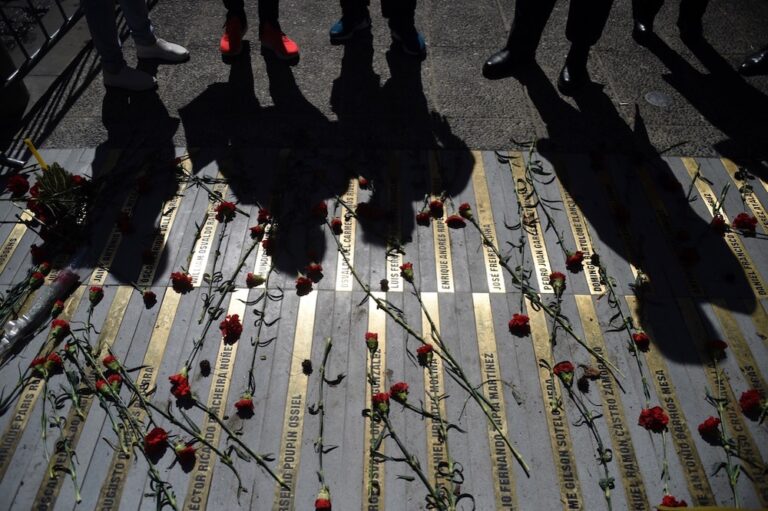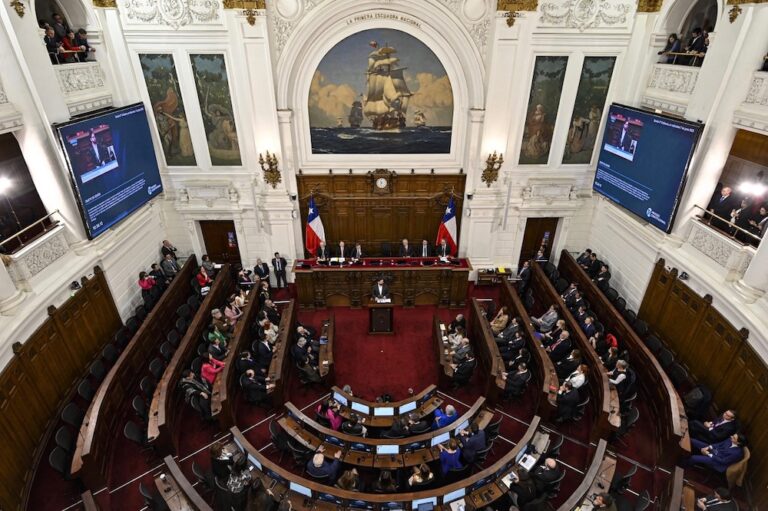(RSF/IFEX) – RSF is dismayed over a Supreme Court ruling made on 26 March 2007, supposedly aimed at regulating the work of journalists accredited to work in the country’s courts. RSF said it shared the view of the Chilean press that the decision, which cannot be appealed unless the matter is referred to the constitutional […]
(RSF/IFEX) – RSF is dismayed over a Supreme Court ruling made on 26 March 2007, supposedly aimed at regulating the work of journalists accredited to work in the country’s courts.
RSF said it shared the view of the Chilean press that the decision, which cannot be appealed unless the matter is referred to the constitutional court, was damaging to press freedom.
The Supreme Court ruling, initiated by Judge Ricardo Gálvez and approved at a closed-door plenary session, specifies that the press should “respect the privacy of magistrates, prosecutors, clerks, judges and secretaries while moving around court buildings and associated car parks”.
It also stipulates that journalists must desist from “approaching court officials without their consent and disturbing them with camera flashes or lighting or video recordings”. The ruling was adopted by 16-2. One of the two magistrates voting against it was the Supreme Court president, Enrique Tapia.
“Court decisions are public in any democracy. The Supreme Court’s judgement is both inappropriate and contrary to the constitutional reform of 2005,” said RSF. “Article 8 of this fundamental law lays down that ‘acts and resolutions of state bodies are considered to be public’. We hope that the constitutional court will, if consulted, reverse this ruling.”
The court press association (Agrupación de Periodistas y Camarógrafos de los Tribunales de Justicia) and the Chilean College of Journalists (Colegio de Periodistas de Chile) have strongly criticised the decision which they described as an “attack on the right to inform the public”. They announced that they intended to appeal, although only the constitutional court, which is independent of the Supreme Court, has the power to overturn the ruling.
Despite some positive movement in favour of press coverage of trials, particularly criminal cases, access to courts by the Chilean press remains limited. In the higher jurisdictions – appeal courts and the Supreme Court – access depends on the goodwill of the judges.


